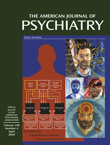An Animal Model of Tourette’s Syndrome
Abstract
OBJECTIVE: An animal model was used to investigate an autoimmune etiology for some cases of Tourette’s syndrome. METHOD: Sera from 12 patients with Tourette’s syndrome with high levels of antineural or antinuclear antibodies were infused bilaterally into the ventrolateral striatum of rats. Sera from 12 additional Tourette’s syndrome patients and 12 normal subjects (both groups with low levels of autoantibodies) were infused for comparison. Rates of oral stereotypies were recorded by observers who were blind to the origin of the infused sera. RESULTS: Oral stereotypies significantly increased in the rats infused with sera from the patients with high levels of autoantibodies. CONCLUSIONS: The results are consistent with an autoimmune etiology in a subset of cases of Tourette’s syndrome.



